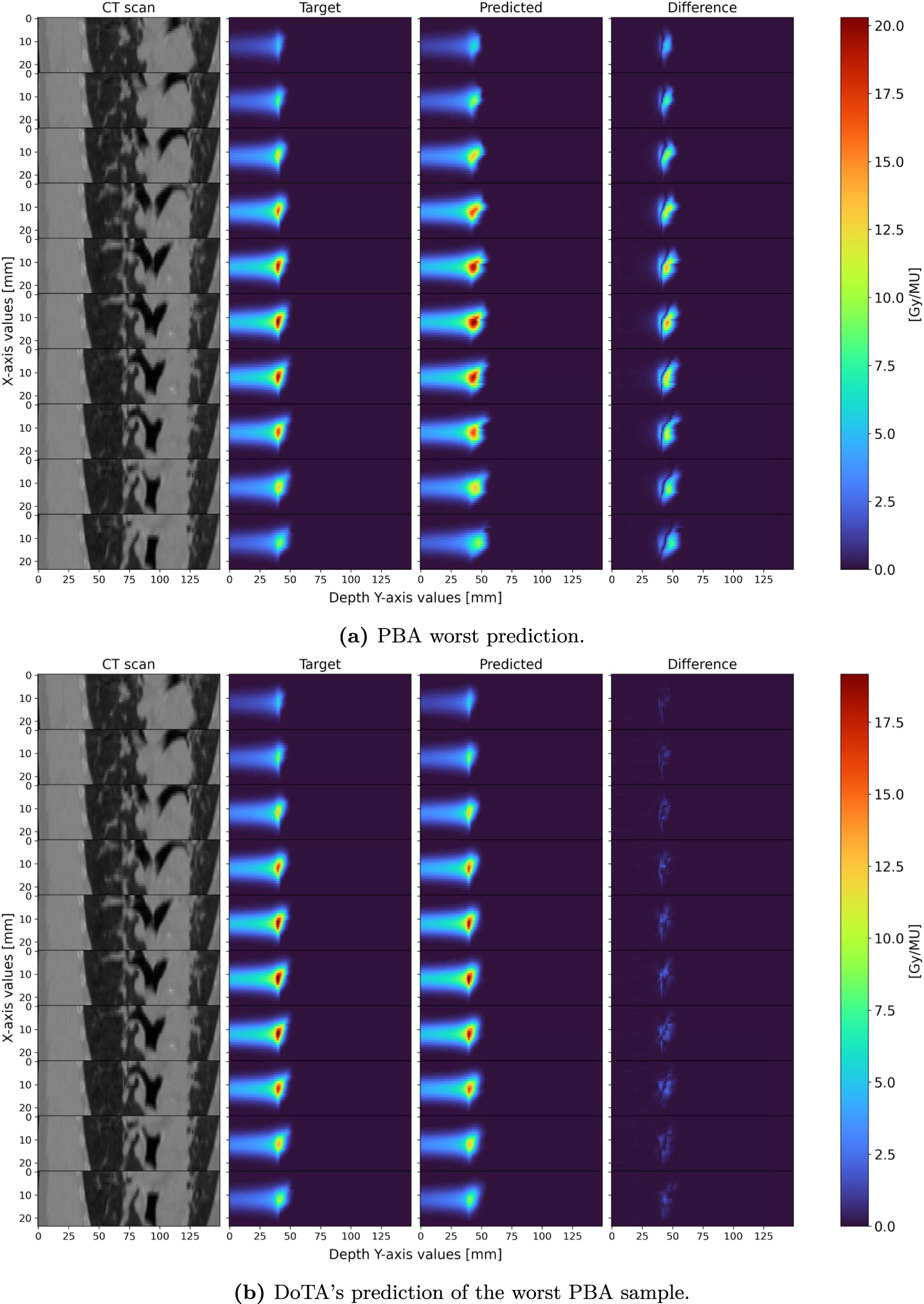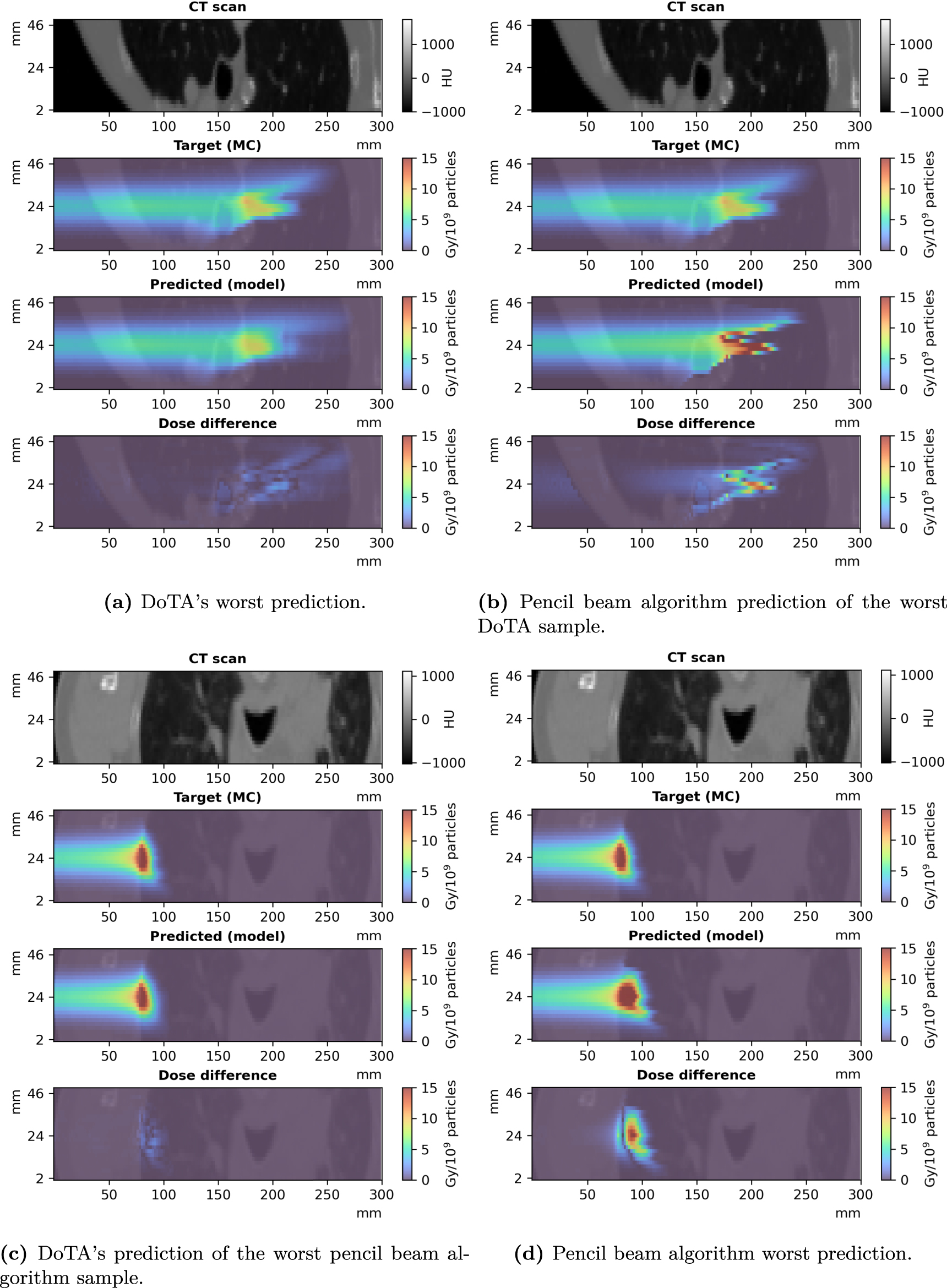DoTA is a data-driven dose engine designed to predict dose distributions with high accuracy. This algorithm learns a mapping between a 3D CT input voxel grid and the output dose distribution conditioned on the energy. The goal is to predict mono-energic proton pencil beam dose distribution in a few milliseconds.

DoTA is trained to predict low-noise MC dose distributions calculated with MCsquare as groundtruth, using a set of CT scans with 2 mm isotropic grid resolution. Small sub-volumes of the CT, blocks covering a volume of approximately (48 x 48 x 300 mm³), are obtained from each patient CT, corresponding to beamlets being shot at different angles and positions, by effectively rotating and linearly interpolating the CT scan. As a result, CT block–dose distribution input–output pairs are obtained with their groundtruth.

DoTA is specific to a certain machine with unique settings and beam profiles, necessitating a specific model per machine. Range shifters, which are often dependent on treatment location and site, also affect the dose delivered by some spots while inserted, thereby modifying the final dose distribution. The goal is to allow users to retrain DoTA on new data or to use it directly for inference by providing CT boxes and energies.
Responsible(s)
- Mélanie Ghislain ICTM/UCLouvain (melanie.ghislain@uclouvain.be)
- Damien Dasnoy-Sumell ICTM/UCLouvain (damien.dasnoy@uclouvain.be)
Related publication(s)
- Millisecond speed deep learning based proton dose calculation with Monte Carlo accuracy O. Paster-Serrano, Z. Perkò Physics in Medicine & Biology 67 (10).
